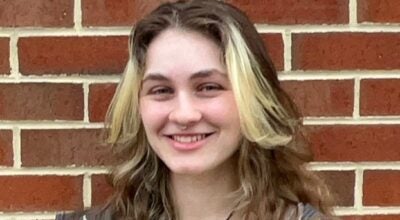Coming together for a cure
Published 10:44 am Wednesday, October 10, 2018
John Horoszewski with Edward Jones in Farmville may have said it best when he described Alzheimer’s disease as a disease where everyone knows someone who is, or has been affected.
Any of us in The Herald office could think of a loved one affected by Alzheimer’s or feel the unsettling and devastating effect the disease has on them and those closest to them.
The members of the Sigma Kappa sorority at Longwood University, who organized a walk with the Alzheimer’s Association on campus Thursday, further confirmed this reality by listing statistics related to the degenerative brain disease and common form of dementia that causes memory loss, and loss of other mental and eventual physical functions.
These include that in the United States, someone is diagnosed with Alzheimer’s every 65 seconds, which is expected to increase to once every 33 seconds by the 2050s; 5.7 million Americans live with Alzheimer’s, this number could increase to nearly 14 million by 2050; the disease serves as the sixth leading cause of death, causing more to die than breast and prostate cancer combined; one in three seniors die from Alzheimer’s or another form of dementia; the average cost of care for someone living with dementia is estimated to be $341,840, and the national cost of care for those with dementia is estimated to be $277 billion.
“Unless something is done, in the year 2050, Alzheimer’s is projected to cost more than $1.1 trillion in today’s currency,” a member of Sigma Kappa said during the event.
Student Julia Byrd may have most eloquently described the reason why finding a cure is so important when detailing an interaction with a man named Tom she worked with at a memory care center. After asking Tom for life advice, he told her: “Let everyone live their own life, and live it the best that they can.”
Early diagnosis can be key to helping a loved one who may be experiencing Alzheimer’s. To learn more about the southeastern chapter of the Alzheimer’s Association, visit www.alz.org/seva or call the national, 24/7 hotline at (800) 272-3900.



